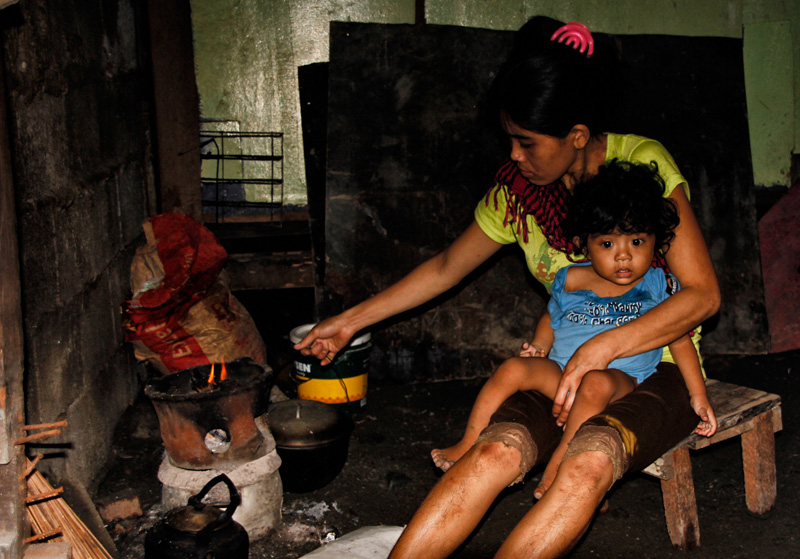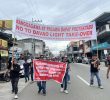
(file photo by Medel V. Hernani/davaotoday.com)
DAVAO CITY, Philippines — Lower poverty estimates “do not necessarily mean” that the poverty situation in the country is improving, the research group Ibon Foundation said on Wednesday.
IBON’s statement was made amidst the declaration of the Philippine Statistics Authority (PSA) that proportion of supposedly poor Filipinos during the first semester of 2018 fall to 21 percent or 23.1 million.
The research group also noted the standard of living allowed by the government’s official poverty line “is very low and grossly underestimates the real number of poor Filipinos.”
PSA estimated that the food threshold is only at no less than PHP7,337 in a month. For a day, a family of five needed PHP244.57 or PHP48.91 to meet their basic food needs.
For the poverty threshold, a family of five needed no less than PHP10,481 to meet both their basic food and non-food needs in a month. This means a budget of PHP 349.37 or PHP 69.87 for each family member in a day.
That is already for expenses on basic food, and non-food such as clothing, fuel, light and water, housing, rental of occupied dwelling units, transportation, and communication, health, and education expenses, non-durable furnishing, household operations, etc.
These figures, PSA said, is 10.9 percent higher compared to the food and the poverty threshold in the same period in 2015.
PSA added that poverty incidence among Filipino families was estimated at 16.1 percent in the first half of 2018, which falls down from 22.2 percent in 2015. Poverty incidence is defined as the proportion of families whose income is below the poverty line to the total number of families.
IBON said that the supposed improvement based on a daily per capital poverty thresholds are “grossly underestimated” that won’t meet decent the minimum standards for food, shelter, transportation, utilities, health care and education.
The research group urged the government’s economic planners to review their method in poverty estimation.
“The subsistence and poverty thresholds are in dire need of updating and upgrading according to more decent standards,” IBON said.
They pointed out: “The subsistence food basket is estimated using so-called ‘least cost’ and ‘revealed preference’ approaches. These result in an extremely cheap food menu, which, while technically meeting bare nutritional requirements is not just sorely lacking in variety but also only hypothetically available for families.”
It added that the PSA failed to account the rising costs of other expenses of the family including housing, public transport, water, electricity, medical treatment and medicines, and schooling.
The choice of official poverty lines is a political one, IBON said.
“Setting a high standard indicates the government having a high level of ambition for poverty eradication. Conversely, setting a low standard indicates low targets for dealing with the poverty situation. The government, however, has chosen the latter, which results in tens of millions of Filipinos not meeting minimum standards of well-being and hidden behind unrealistic official poverty statistics,” IBON stressed. (davaotoday.com)








